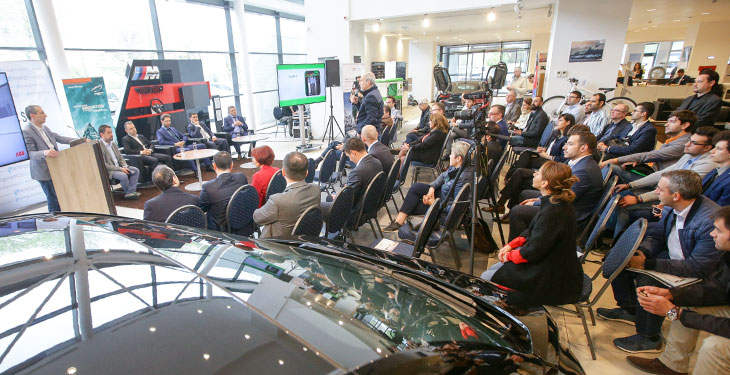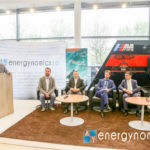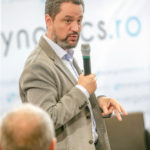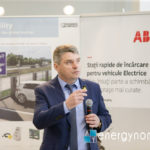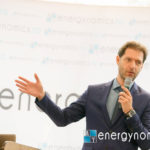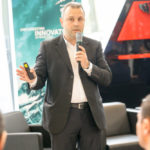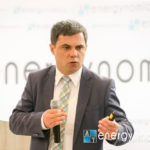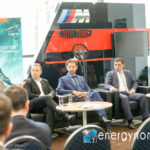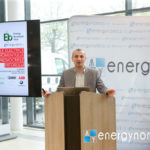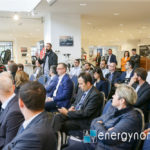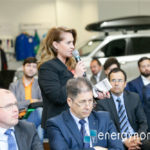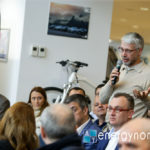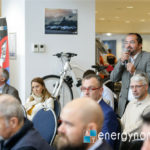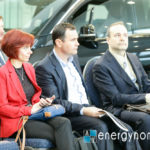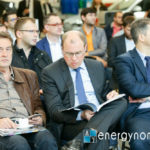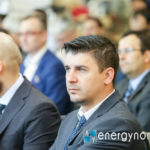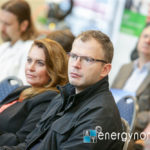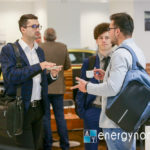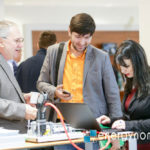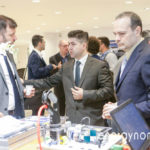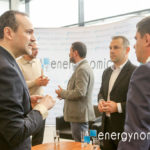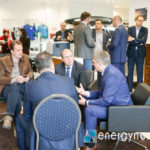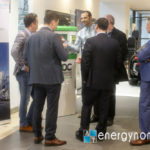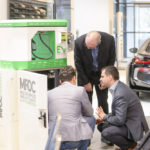Technological solutions are developing at a dizzying pace, making it more difficult to decide on a large-scale investment at the company level but also for the individuals and public authorities altogether. The key question we need to answer is “Why do we invest in electrical mobility?”, because, depending on the response, car manufacturers, together with suppliers of equipment and services for e- mobility, are ready with tailor-made solutions.
Global leaders such as ABB, Schneider Electric, BMW or Phoenix Contact, as well as local companies such as MET Romania Energy and Stratum Enclosures have discussed at the Energy Breakfast Club about future trends in e-mobility and the best options to capitalize the opportunities of the moment.
The electric car has already proven to be a solid and efficient technology, not only globally, but also in Romania, where more than 1000 electric cars, many of them part of commercial fleets, are already in use. Most users only charge the batteries of their electric cars at home; however, the public infrastructure of charging stations is necessary because it opens new possibilities for using the e-car and supports its spreading at the urban communities.
Electric cars have already confirmed their potential
Currently, the 1.0 e-vehicle is a vehicle well suited for the cities, with a range of 150 to 300 kilometers, most often used to travel about 40 kilometers per day, said Alexandru Seremet, Communication Manager at BMW. “In a few years, electric cars with high autonomy (more than 400 kilometers) will become more numerous, especially SUV models where the mass and dimensions of the car ‚hides’ the mass and size of the batteries”, says AlexandrU Seremet. These large-sized models will allow extra-urban travels using batteries with an over 100 kW power, compared to 15-45 kW, at present.
DOWNLOAD THE PRESENTATION OF ALEXANDRU ȘEREMET
“On a medium term, installed power for residences should increase to cover the need for electric cars, from 5kW to at least 15kW”, the BMW representative anticipates. At the macro level, the environmental impact of urban transport will be reduced, “if the energy used will be green enough”, but it will have a notable impact on the daily energy consumption, which will put great pressure on urban distribution networks of electricity.
Bigger, faster, more efficient
Constantin Ichimoaei – Executive Manager of the Transport & Infrastructure Segment within ABB Romania presented the global reach of the group’s involvement in the field of electrical mobility. With a turnover of 36 billion dollars (2016) and 135,000 employees in more than 100 countries, ABB has undertaken the mission to offer AC and DC Charging solutions for Electric Vehicles from 3-600kW with cloud connectivity based on standards using ABB technology and ABB manufacturing, in all countries. “Since 2010, ABB has lead the evolution of electric cars and charging infrastructure, through pilot projects, industrial alliances and technological firsts for high-powered vehicles,” said Constantin Ichimoaei. The Group has a strong presence in Europe, the United States and China, whether we are talking about cars, buses or electric trucks.
DOWNLOAD THE PRESENTATION OF CONSTANTIN ICHIMOAEI
Alongside carmakers and in deep cooperation with all of them, ABB develops open standard protocols, “as the batteries grow in volume and the power of the charging stations increases with autonomy.” The ABB representative presented the main types of charging stations – standard AC and DC, DC Fast and DC High Power, insisting on the destination and mode of use most suitable for each of them. Constantin Ichimoaei also outlined the charging solutions for public buses, but also the AUTOCHARGE function in the ABB Chargers allowing payment to be processed automatically via unique identifier for each vehicle with DCS charging standard.
The e-car is charging mostly at home
Based on the statistics of yet another industrial giant, Răzvan Copoiu, Vice President Industry South & Eastern Europe Schneider Electric, referred to the fact that the charging habits for the electric car owners are different from those we know from the combustion engine cars. “I do not expect traditional gas stations to simply transform into electric charging stations,” said Răzvan Copoiu. With over 68,000 stations installed in 40 countries, Schneider Electric can assert that the vast majority of electric cars use standard load for charging, generally at the residence of the owners. “For most of us, the 11kW stations are enough because they allow overnight charging at reasonable costs, enough for transportation needs in the cities,” said Răzvan Copoiu.
DOWNLOAD THE PRESENTATION OF RĂZVAN COPOIU
It is essential that the beneficiary would establish very clearly what are the specific mobility needs for a specialist to propose the most appropriate package, which would take into account, inter alia, the type of vehicle, the space and the duration of the parking, legal environmental and safety requirements in place, available power and energy management strategy.
“We offer what customer needs and not what he thinks he wants”, Răzvan Copoiu summarized the philosophy behind EVlink’s offer from Schneider Electric.
The electric car is the solution for reducing pollution
In his speech, Andrei Bucur, Business Development Manager of MET Romania Energy, opened the dialogue to new horizons: the environmental impact of electric transport, an essential element that public authorities have to incorporate into their development strategies. “Climate Change is maybe the biggest challenge to mankind since we started to burn fossil fuels,” said Andrei Bucur. Electrical mobility is the answer to road transport, with 1.1 billion cars already on the streets globally, and an additional 100 million cars entering the streets every three years. Compared to the diesel engine, the electric motor is much smaller, maintenance free, oil free, no moving parts, and has a 95% efficiency for at least 10 years.
DOWNLOAD THE PRESENTATION OF ANDREI BUCUR
In addition, electric cars come with much reduced noise pollution, an element that is also relevant to large urban agglomerations.
“MET Romania Energy services cover all the segment, from smart energy supply (with Solar/Wind power prediction and real-time supply and demand management), to smart buildings (dynamic power load strategies and solar & building energy storage integration) and smart charging (plug&charge, charging schedule & plan, individual customer tariffs)”, Andrei Bucur summarized.
Phoenix Contact E-Mobility provides support for system integrators
In turn, Marius Cătălin Lepinzean, Business Development Manager at Phoenix Contact, presented the Phoenix Contact E-Mobility offer: components and solutions for AC and DC charging, customized charging infrastructure concepts, and innovations allowing for high power charging. ” What Phoenix Contact proposes is this mix – starting from components, through integration of the solutions and implementing some ideas through appropriate technical solutions”, explained Marius Cătălin Lepinzean.
DOWNLOAD THE PRESENTATION OF MARIUS CĂTĂLIN LEPINZEAN
“While we do not produce turn-key stations, we support system integrators in Romania to build such stations. Such companies, with the support of Phoenix Contact, offer integrated solutions – both the stations themselves and the networks and hardware / software architecture necessary for data transfer and complex network administration”, explained Marius Cătălin Lepinzean.
The invited speakers and most of the participants in public agreed that there is a need for closer dialogue between industry representatives and public authorities in order to expose the benefits of electric mobility and the ever-increasing technological products and services in this area. Mainly, big city administrators need to better understand what are the problems (financial costs, noise, air pollution, fleet management etc) for which electric cars, e-charging and energy management systems can be solutions right now. This bidirectional communication is all the more necessary in designing sustainable and beneficial mobility strategies.
Over 45 representatives from ABB, AFEER, BMW Auto Cobălcescu, Caranda Baterii, CMS, Dell, E.On România, EFdeN, El-Mont, Energy Design & Consulting, Enevo Group, Eximprod, General Investigation, ITOCHU Corporation, MET România Energy, Model Constanta, Money Corp, Next Energy, Phoenix Contact, Photon Energy, Radio România Actualități, SCP Botezatu & Asociatii, SIXT New Kopel, Stratum Enclosures, Transelectrica, Vegacomp Consulting, Vlăsceanu, Ene și Asociații, World Motion attended the presentations and participated in discussions.
Energy Breakfast Club was organised by energynomics.ro with the support of our partners: ABB România, BMW, MET România Energy, Phoenix Contact, Stratum Enclosures, Schneider Electric.
Participation
This year, energynomics.ro will organize 10 Energy Breakfast Club meetings. The schedule and the proposed themes for 2017 are available in the Energy Breakfast Club dedicated page.
